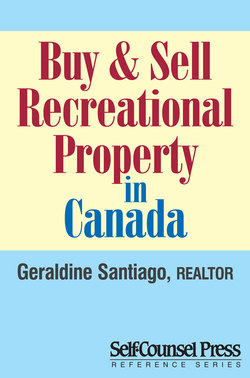Читать книгу Buy & Sell Recreational Property in Canada - Geraldine Santiago - Страница 44
На сайте Литреса книга снята с продажи.
Floating Homes
ОглавлениеA floating home is a special type of houseboat without a motor. If you are considering purchasing a floating home, it must be sold in conjunction with a water lot in order to qualify as real estate. Without an attachment to land, however, it remains simply a “boat,” which is considered a chattel — and agents are prohibited from selling chattels.
Most water lots are leased but some allow for private ownership, sometimes called “fee-simple ownership,” which means the owner has the right to control, use, and transfer the property. Water lots are usually divided into strata-titled units, and they are registered in the land registry office.
Many floating-home owners would say that aside from the sheer beauty of living on the water, the lack of yard work (such as mowing the lawn or trimming hedges) and the close ties that develop within the floating-home community are some of the benefits.
A problem you may find when considering buying a floating home is that many financial institutions are reluctant to give a mortgage for this style of housing because it is still perceived as unconventional. There are also monthly marina fees to consider, which help pay for dock maintenance and services such as sewage and water.
When considering purchasing a floating home, it is important to conduct due diligence as there may be issues that are different from purchasing a recreational home on land. Many floating homes are located in a floating-home community, such as one found in a marina. Most of these communities already have water and sewage connections established. There may also be covered parking lots included with the price, or a garage nearby where you can park your vehicle.
You may also want to consider the unique maintenance costs for your floating home. In some areas you may find it difficult or expensive to find someone with the specialized skills for dealing with floating-home maintenance, while in other areas the marina will offer the services of experienced carpenters, electricians, plumbers, and so on.
Typically, each marina has its own separate contract, terms, conditions, and/or lease agreement for you to sign. Take the time to read the fine print carefully. There are many complicated issues that you should be aware of, such as what types of amenities are included, the cost of association fees, available moorage, etc. Equally important are site development standards, spacing, resident access, water supply, sewage disposal, solid waste collection and disposal, rodent and insect control, electrical power, and general safety. There may also be restrictions for the type of floating home allowed in the marina, such as height, design, dimensions, and internal layout.
If you are considering building your own floating home, there are architectural standards to take into account. For example, floating homes need to be both fireproof and unsinkable, and in many communities they cannot exceed three storeys in height. Professional help is required as floating homes are an engineering specialty. You may need to contact the local chapter of the National Association of Marine Surveyors (nams), or the Professional Engineers Association of your province. You may also want to read the Canada Marine Act for more information.
